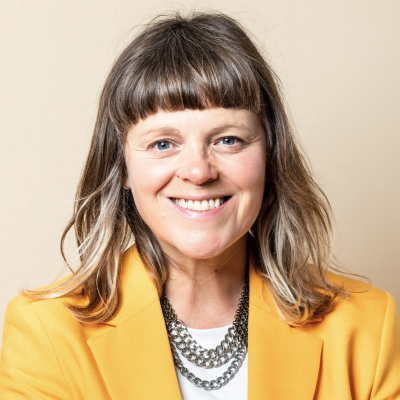Making friends with your anxiety
Anxiety can have a huge impact on many of us, so re-framing anxiety as a ‘friend’ might, initially, feel like a bit of an illogical thing to do! Please bear with me…
‘Anxiety’ is one of those words, like ‘depression’ that gets used a lot and maybe it can be used so often that it’s meaning can get a little bit lost?
One definition is:
Anxiety is “distress or uneasiness of mind caused by fear of danger or misfortune”
This seems to say that we feel anxiety when an aspect of our sophisticated body-mind-system picks up that we are in danger in some way. So anxiety is there to signal to us that we need to take action to protect ourselves… so maybe it is trying to help us?
Therefore wouldn’t it make sense to make friends with our anxiety and gently enquire what it is trying to warn us about and thereby protect us from?
Anxiety and anxious feelings can have their roots in what’s happened to us in life so far and sometimes in our biological make-up - both of which are unique to each one of us. Therefore gently asking it, what it’s trying to warn us about, could bring up different answers for each one of us.
At times, anxiety can get put in a box, neatly labelled - "my anxiety". Potentially, a box that is tightly sealed and techniques like grounding ourselves and deep breathing need to be applied to that box to prevent that box from over-spilling. For some people this can lead to a panic attack. Whilst techniques might be needed to help contain the anxiety, and therefore allow the individual to function on a daily basis, if only ‘containing techniques’ are applied to the box, that could mean that the ‘my anxiety’ box never shrinks or goes away completely. It is always there with the potential of spilling over at seemingly any time… maybe now? Or now? Or how about now? That, in itself, could be experienced as anxiety-provoking for some.
So we now know that anxiety is our early-warning device that’s telling us that something isn’t right and that we are in danger. If we deep breath through this every time, without enquiring and understanding it, that early-warning device is potentially going to keep going off at seemingly random times. If we become more interested in our anxiety and what it is trying to alert us to then maybe we can come to understand what it’s trying to tell us.
Of course, at times, our anxiety might be warning us of very real and present threats that we need to react to. At other times maybe, what our anxiety is trying to tell us was really helpful at some earlier time in our life e.g. “this conflict is going to turn into violence - run and hide!” - but maybe now it isn’t so helpful as it’s no longer accurate - maybe it actually holds us back? To help see this more clearly let’s visualise an ‘anxiety database’ that has rows upon rows of things that we fear based upon our own individual experience and the fact that we are human beings. And maybe some of those rows in the database are out of date?
Counselling could be a safe space to start taking a look at what your anxiety is trying to tell you. During a session there is the possibility of identifying the potential ‘triggers’ (things that fire off the feelings of anxiety for you in particular). When identifying these triggers you may well find that some are outdated. This understanding can allow you to see that you no longer need to be afraid of that particular thing and therefore this no longer needs to be held in your anxiety database - that particular row entry can gently dissolve away. Applying this gentle enquiry, to all feelings of anxiety, could potentially lead to a general reduction in your overall feeling of anxiety.

Find a therapist dealing with Anxiety
All therapists are verified professionals






